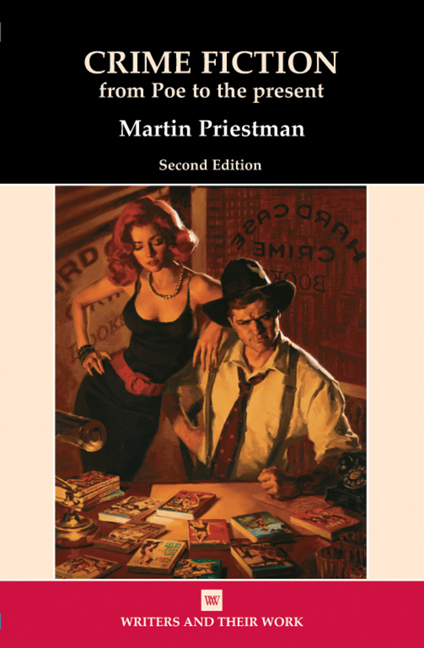Book contents
- Frontmatter
- Contents
- Acknowledgements
- A Chronology
- Introduction
- 1 The Detective Whodunnit from Poe to the First World War
- 2 The Detective Whodunnit from Christie to the Present
- 3 The Noir Thriller
- 4 The Hero-Thriller
- 5 Private Eyes: The Detective Thriller
- 6 Serial-killer Fiction and Other Developments
- Conclusion
- Notes
- Select Bibliography
- Index
5 - Private Eyes: The Detective Thriller
- Frontmatter
- Contents
- Acknowledgements
- A Chronology
- Introduction
- 1 The Detective Whodunnit from Poe to the First World War
- 2 The Detective Whodunnit from Christie to the Present
- 3 The Noir Thriller
- 4 The Hero-Thriller
- 5 Private Eyes: The Detective Thriller
- 6 Serial-killer Fiction and Other Developments
- Conclusion
- Notes
- Select Bibliography
- Index
Summary
The detective thriller combines elements of all three of the forms described above. Its protagonist is most typically a private eye, who spends considerable time uncovering a past mystery but whose solitary, unofficial and employed status ensures that he or she is also involved in a struggle with powerful forces in the present tense of the narrative. These can include the police and, to the extent that the detective's need to protect the client's interests involves bending or breaking the law, the genre has some of the qualities of the noir thriller. Insofar as the detective is prone to direct threat from criminals, often professional and/or interlinked in ways which only gradually become clear, it also has characteristics of the hero-thriller. At the same time, there is generally a whodunnit-like puzzle to be solved by the end, although here, given that straightforward murders are the province of the police, the detective often stumbles across them in the course of following up some more private matter for the client.
The existence of a client is one of the crucial factors differentiating the form. The fact that he or she has theoretically paid for the detective's loyalty can then often be used to signal the inequities of a system in which money can be thought to buy justice, in such set-piece situations as the detective's refusal to pocket the money or (even more commonly) the final revelation that the client or someone close to them is the real criminal. This often works to bring satisfyingly full-circle what began as a close-to-home private investigation into a blackmail message or a missing person, and only gradually spiralled outwards into the network of interrelated plots, leading the detective on an odyssey through ever-shifting milieux, which is another characteristic of the form.
Insofar as he is a ‘consulting detective’ available for hire, Sherlock Holmes sometimes anticipates later private-eye heroes in going well outside the law and in expressing moral contempt for (if not exactly refusing) the payments pressed on him by his wealthier clients. Both these features occur in the very first short story, ‘A Scandal in Bohemia’.
- Type
- Chapter
- Information
- Crime Fictionfrom Poe to the present, pp. 52 - 64Publisher: Liverpool University PressPrint publication year: 2013



